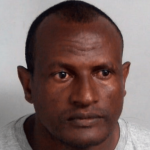U.S. Vows to Resume Nuclear Weapons Tests After Russian Developments
In a dramatic escalation of nuclear brinkmanship, U.S. President Donald Trump has announced a bold decision that America will renew nuclear munitions tests.
The protestation comes in the wake of Russia’s recent trial of advanced “superweapons”, including a nuclear-powered aquatic drone erected to shirk interception and spark littoral desolation.
Trump’s announcement was posted late Wednesday on Truth Social, mere hours before he met Chinese President Xi Jinping in South Korea.
He wrote that the United States has “tremendous destructive power,” and that “Because of other countries’ testing programs, I have instructed the Department of War to start testing our Nuclear Weapons on an equal basis. That process will begin immediately.”
The timing is tactically charged. It frames the move as a direct response to Moscow’s recent displays of military might.
The U.S. has apparently resumed live nuclear testing as decreed by bleat tonight:
“Start testing nuclear weapons” on an equal basis. pic.twitter.com/ezPvtcebip
— Christian H. Cooper (@christiancooper) October 30, 2025
Moscow insists it has tested new capabilities. “In terms of speed and operating depth, there is nothing like this unmanned vehicle anywhere in the world, and it’s unlikely that anything similar will appear in the near future,” Putin remarked, referring to a submarine drone.
Meanwhile, Russia’s unveiling of an “unlimited-range” nuclear-powered missile has stirred tensions further. Putin touted it as “a unique weapon that no other country possesses.” He framed it as a strategic equalizer in an era of great power contest.
Trump, unconvinced, scorned the announcement. He said it was ill-timed, pushing Putin instead to “get the war ended” in Ukraine, the conflict that has defined Russia’s foreign policy since February 2022.
Trump also claimed the U.S. “has more Nuclear Weapons than any other country.” Yet data from the Federation of American Scientists contradicts that: Russia is believed to still maintain the largest inventory of warheads.
He defended his stance by pointing to the U.S.’ ongoing missile tests and strategic positioning, adding that one of America’s nuclear submarines sits “right off [Russia’s] shore,” negating the need to travel thousands of miles.
Notably, the U.S. last conducted a full nuclear test in 1992, its 1,054th. A resumption would mark a major shift in American military posture.
The three major nuclear powers, Russia, the U.S., and China, are signatories of the 1996 Comprehensive Nuclear-Test-Ban Treaty, which prohibits “any nuclear weapon test explosion or any other nuclear explosion.” However, none have formally ratified it.
Russia ratified in 2000 but withdrew that ratification in 2023, aligning itself with the U.S.’ treaty-ambiguous status.
Though China has expanded its arsenal, its last known nuclear test was in 1996.
In the 21st century, only North Korea is confirmed to have conducted explosive nuclear tests, though other nuclear states continue to refine their delivery systems.
Unsurprisingly, Trump’s plan is facing resistance at home. Representative Dina Titus (D–Nevada) responded sharply on X: “Absolutely not. I’ll be introducing legislation to put a stop to this.”
The move has bipartisan critics who warn of arms race escalation, legal obstacles, budgetary burdens, and catastrophic risks.






